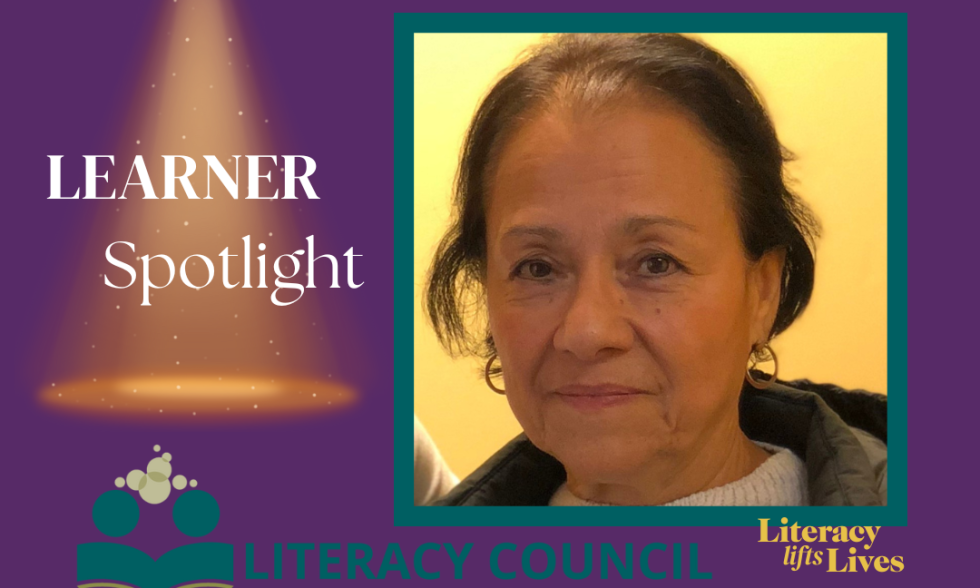
Sep 22, 2025September 22, 2025
The Literacy Council of Frederick County (LCFC) is a nonprofit, non-sectarian organization of volunteers dedicated to helping fellow adult residents learn to read, write, and speak English.
In Frederick County, about 13,000 people, or 6.5% of the population 25 years and older, have less than a high school education. Many can’t read, write, and spell at a functional level. In addition, at least 13,900 people whose native language is other than English speak English less than “very well.” (Data from the 2020 American Community Survey of the U. S. Census Bureau.)
Our English as a Second Language (ESL) Program for non-native English speakers offers one-on-one tutoring, Community classes, and Parent Literacy classes in local Judy Center Schools.
Our Workforce Development (WFD) Programs offers Workplace Literacy classes, WRD Workshops, and Hospitality certifications.
Our Life Skills Program offers one-on-one tutoring in basic reading and writing for adults who speak English as their native language and programming for GED preparation, Digital Literacy, Financial Literacy, and Health Literacy.
We serve English-speaking adults, 18 years or older, who read, write, and spell below the 5th grade level, as well as speakers of other languages who want to learn English; we require program participants to live or work in Frederick County, Maryland. Our tutors are trained to teach adult learners who have mild to moderate disabilities related to reading. Experience has taught us that students with more severe learning or cognitive disabilities do not make meaningful progress in our program.
All tutoring is free and confidential. We ask students to pay for their workbooks.
They find us, many by word of mouth. Some are referred by county agencies, churches, employers, friends, or other students.
We require tutors to be literate adults (18+) and live or work in Frederick County, Maryland to volunteer with us.
We require prospective tutors to attend a virtual Volunteer Information Session (1 hour) and a virtual Tutor Training Workshop (3 sessions).
Virtual Tutor Training Workshops are offered at least four times a year.
Yes. Our tutoring materials are designed to be used by people with no teaching experience. However, if you do have teaching experience, we can arrange for abbreviated training.
Yes. In fact, it is often better if the tutor doesn’t speak the student’s native language.
Yes, you are welcome to take the training and purchase books from us for your own student.
There is no charge for tutor training. When you begin to tutor for the council, you will be provided materials from our Literacy Library.
Our students learn best if they are tutored twice a week for 1 to 1-1/2 hours each time. Some tutors and students can meet only once per week for 1 to 2 hours. You will probably need an equal amount of time for lesson preparation and travel, for a total volunteer time of 3 to 6 hours per week.
You will be expected to meet with your student on a regular basis, keep your program coordinator informed of your tutoring activities and any problems, and submit a monthly report of your volunteer hours and your student’s progress.
Student-Tutor Coordinators match tutors with students according to location, availability, and preferences.
Lessons are held at a time and place mutually convenient for tutor and student. The location should be a public place such as a church or school, the Literacy Council office, a library, a fire hall, or the student’s place of employment. This policy is designed to protect both tutors and students. Tutors and students may not accept transportation from, nor provide transportation to each other.
The length of time varies depending on the student’s background, the frequency of lessons, and the student’s individual goals. Generally, students are with us for 1 to 3 years. We ask that tutors make a minimum commitment of one year to our program if possible. If that’s not possible, we also have some opportunities for shorter-term tutoring.
Most of our students are tutored individually, but we also have several group ESL classes.
No. Each tutor is matched with a Student-Tutor Coordinator to report to and consult with. The Literacy Council will keep you updated with newsletters. You may borrow helpful materials from the tutor resources in our office and participate in regional and national training opportunities. Also, we are an affiliate of the national adult literacy organization Proliteracy, which provides many online resources.
All of our tutors are volunteers, but we provide them with a wealth of books and other teaching and learning materials. In recent years, through the generosity of our donors, we have been able to employ six full-time and one part-time staff members who have enabled us to operate more efficiently and reach out more effectively into the community. We are teaching a growing number of adult learners and, as a direct result, have more tutors than ever before. And the need continues to grow!
The Literacy Council is supported by foundation grants and contributions from individuals, local businesses, churches, and other community organizations. For the past several years we have been one of the nonprofit participants in the Unity Campaign for Frederick County.
We need assistance in a variety of areas: office help, fundraising, publicity, grant writing, committee work, and event planning, preparation, and staffing. We are always looking for new trainers for our tutor training workshops.